Work in Barcelona: Amy
11 déc. 2019
Born and raised in Canada, Amy moved to Barcelona to change career by retraining as a software developer. The 28-year-old has now settled in Poblenou with her flatmate, Chris. Here, she shares her expat experience of the city.
How did you end up in Barcelona?
After I graduated from university, I taught English in Japan for three years. I had a degree in English and psychology, but when I got back, I realized that this was not what I wanted to do. I was lost for a bit, but I decided that I wanted to change my career path drastically and become a software developer. There were a couple of ways to do that. Eventually, it seemed the best way to change my career path drastically and quickly would be to go to a coding bootcamp.
I looked into some options in the US and Canada, but I realized that in terms of the price, I had to pay a lot to go to the best camps in the US. It was a little bit too much for me at the time and then I found a school called Codeworks in Barcelona. They claimed to have the strongest curriculum, on par with the ones in the US, but half the price of tuition.
I thought, well, I’ve never been to Spain, that sounds kind of fun. I’ve already lived in Japan, Singapore and the US for a couple of years each, so.. It was a little bit rash but I ended up coming here a year ago for a few months. I got a job straight after graduation and I’ve been here ever since!
Did you have to go back to Canada before settling in Spain?
Yes. Basically, when I was here doing the Codeworks program, I was on a student visa, which was valid for about six months. After I got a couple of job offers, and I was considering coming back to Spain to start work here, I realized that I needed to get a different visa because you can’t work with a student visa. I was quite surprised to learn that if you’re under 35, you can apply for a Youth Mobility visa to live and work for up to a year in Spain. Canada has this agreement with Spain and a lot of other European countries.
After I graduated from Codeworks, I went back to Canada to visit my family and relax for a bit, While I was discussing the different job offers that I had, I applied for the Youth Mobility visa. It took me two or three weeks to gather all the documents I needed, and then they delivered the visa two and a half weeks later, which is actually pretty fast. From my understanding, the Youth Mobility program has 1,000 slots a year, but they never get filled up because for some reason nobody knows about it and people don’t apply.
Japan, Singapore, the US… you’ve lived in several countries. How is Barcelona different from what you have experienced so far?
It’s not that things move slower, but people take their time here. For example, people don’t start eating dinner until 9pm, sometimes 10 or 11, and that was just unheard of for me. I remember studying with a friend and, as I got up to eat at, say, 7pm, she was, like, “Where are you going?!” I said, “Oh, I’m gonna get dinner,” and she’s, like, “What?! At seven?!” (she laughs). Apparently, people don’t start eating dinner until 9pm, sometimes 10 or 11, and that was just unheard of for me.
Another thing that surprised me, but that I actually quite like, was how much time people spend outside, even during the working day. We have a terrace at work and you’ll see a lot of people just bringing their laptops outside or starting to do work outside. People are constantly having barbecues or going to the beach for lunch. My office is a 10-minute walk from the beach, so a couple of times I’ve gone with my coworkers to have a salad by the beach. It’s awesome! Honestly, it’s really nice, especially coming from a place like Canada, where we spend most of our year indoors because it’s so cold!
Another thing that surprised me was how much time people spend outside, even during the working day
What has been the biggest challenge to embracing your new social life?
I think whenever you move to a new country, you generally don’t have time to feel culture shock in its entirety because you’re mostly just flustered and want to get your life in order. But I would say that the most difficult part when I first got here, and right now as well, is that I don’t really know any Spanish. I’ve been learning but I’m still really afraid to use it. So there is that language barrier. But I would say that younger people here can speak at least a bit of English. And there are so many expats in Barcelona, so if you want to spend time with an international crowd, you have that option. Something that I’ve also been doing is attending tech meet-ups and going back to Codeworks to say “hi” to my former classmates and teachers.
How welcoming are the locals?
People here tend to be very emotionally open about their opinions and how they feel about things. Because of that, even if you don’t understand the culture or the language, as long as you’re open and honest with them, you’ll feel completely welcome.
People here tend to be very emotionally open about their opinions and how they feel about things.
Was it hard finding a place to live? How did the flat search go?
When I decided that I was going to accept one of the job offers in Barcelona, I needed to get a place to live. It just so happened that another Codeworks graduate, Chris, who I had met briefly, needed to get a new apartment as well and we decided, why not get an apartment together? He moved from Finland months before me, but as I was back in Canada getting my visa, we both looked online for apartments. It’s still the easiest way to find a place. If you want to get an entire place for yourself I’d recommend idealista. If you’re ok with having a roommate and subletting from someone, Badi is a good alternative.
Be aware that apartments tend to be very dark. Even though it’s so sunny and beautiful most of the year, the actual apartments people live in tend to be quite dark because all of the buildings are close together in certain parts of the city, and they shade each other from the sunlight. That could be the reason why people spend a lot of time outside!
What area do you live in?
We ended up finding a place in Poblenou. This area is kind of a revived hipsterish tech area that’s super close to the beach. There are a lot of trendy cafes and restaurants—not as many restaurants as in the Gothic, but a lot of new places are popping up—and it’s mostly offices and coworking spaces, which can sound boring but it’s actually quite exciting.
The building is about 200 years old, it’s got these ceilings with the original beams, and tiled floors, which is all very typical. I’ve found that Spanish interior design is always, like, really colorful and vibrant, and really matches the atmosphere and the culture in Spain in general.
How did you find your job?
Codeworks organized a hiring day, where a bunch of companies that are interested in students come to visit. My current company, The Book of Everyone, they were one of those companies. I had a short interview with them that day, and they asked me to come back for a second and a third interview, and ended up offering me a job as a developer pretty quickly.
What’s the employment market like for devs?
Tech companies and start-ups are popping up everywhere in Barcelona and they are in dire need of talent in the IT sector. There are so many jobs available and not enough devs to fill the spaces! So if you end up applying here, you are going to hear back for sure from at least a couple of companies.
The one negative side, perhaps, is if you’re looking to make, like, hundreds of thousands of euro a year, you’re not going to do that here. Senior devs do actually make pretty good money here, but the salaries are not like those in the US or the UK. I think, in the end, it’s all about quality of life and things balance out.
Tech companies and start-ups are popping up everywhere. There are so many jobs available and not enough devs to fill the spaces!
What about the work life?
Something that really surprised me was how laidback everyone is about a lot of things, especially things like deadlines (she laughs). Work life here is much more flexible compared with what I’m used to. There are so many bank holidays, and there’s a period of two weeks in August when everything just shuts down because everyone goes on holiday.
There’s also the flexibility to work from home a lot, or to pick up your laptop and go to the terrace, or to go to a cafe for lunch while, like, half-working and half-eating a croissant or something. So even though technically you work a desk job, you don’t necessarily have to be sitting at your desk all day. And with this beautiful weather that we have most of the year, it encourages you to get up, you know, off your seat.
There’s the flexibility to work from home a lot, or to pick up your laptop and go to the terrace, or to go to a cafe
Are you planning to stay?
I’d like to stay at least two years because I find that if you’re moving to a new country that has a completely different culture, it’s always good to learn the language a bit and try to immerse yourself in that world a bit more. Honestly, if you only stay one year, for the first six or seven months, you’re just going to be settling in.
I think it’s also a really cool place to meet interesting people because it is such an expat city and such a popular tourist destination. You have people from all over the world filtering through here, and even if it’s for a short time, you can make, like, amazing friendships and meet really interesting characters from around the world. Even though it is a large and vibrant city, it feels more relaxed. It doesn’t feel hectic or stressful at all.
Inspirez-vous davantage sur : Work in Barcelona
Moving to Barcelona for work? Navigate the job jungle in this international hub with our insider tips, advice from locals and insights from industry experts.
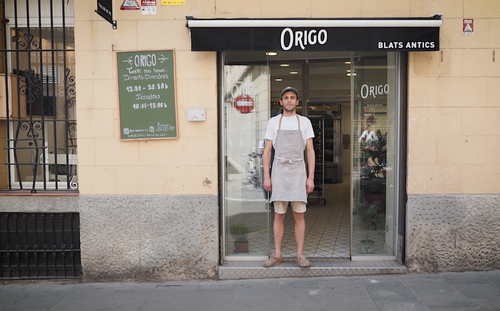
Work in Barcelona: François
Originally from Belgium, he left his job at Google in San Francisco to move to Barcelona with his wife, where he decided to open his own bakery.
11 déc. 2019
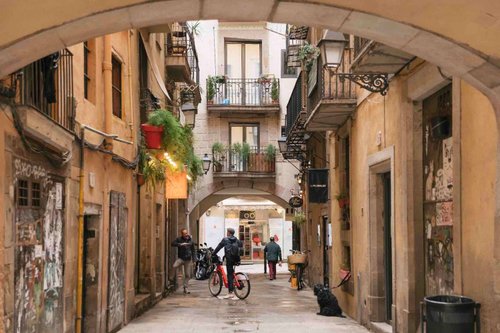
Work in Barcelona
Considering relocating to Barcelona? Let’s have a look behind the scenes to understand what it takes to be a happy expat in Barcelona.
11 déc. 2019
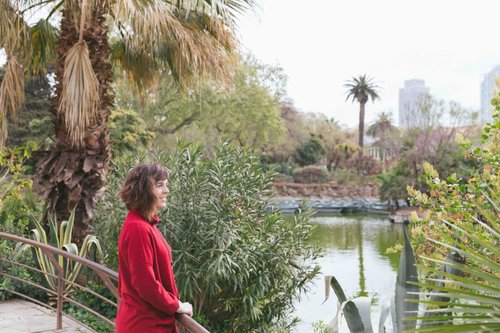
My Barcelona: ‘The city is so much richer than it seems’
For Anaïs, Barcelona is such an enticing city that she has made it her home not once, but twice.
13 nov. 2019
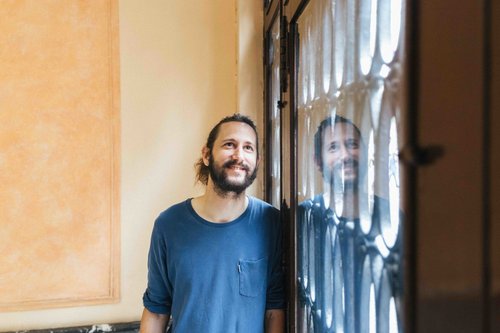
My Barcelona: ‘It’s the Silicon Valley of Europe’
Frenchman Erwan Riou originally qualified as an architect, but after a stint in Brazil, the 33-year-old started retraining as a programmer...
13 nov. 2019
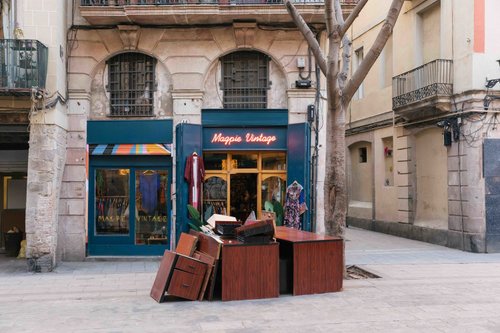
No Money? No Problem!
It’s the end of the month and you’re in the red… Fear not! Here are our tips for where to head when you need to enjoy Barcelona on a budget.
13 nov. 2019
La newsletter qui fait le taf
Envie de ne louper aucun de nos articles ? Une fois par semaine, des histoires, des jobs et des conseils dans votre boite mail.

Vous êtes à la recherche d’une nouvelle opportunité ?
Plus de 200 000 candidats ont trouvé un emploi sur Welcome to the Jungle.
Explorer les jobs